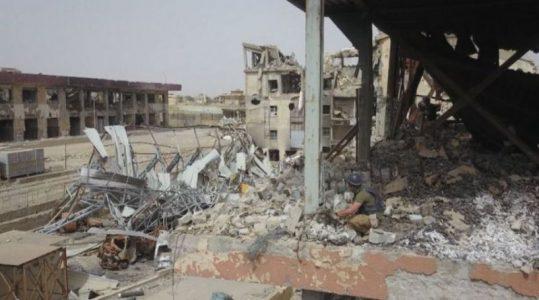
Iraqi authorities extremely contaminated with the hidden ISIS bombs
A former British Army bomb disposal officer who is helping rid Iraq of thousands of hidden explosive devices says the country is “extremely contaminated”.
Dave Parker, who served for 24 years, is working for the United Nations Mine Action Service.
The UK has been one of the biggest supporters of the initiative since 2015, spending more than £14 million for explosive hazard and risk management through the Conflict Stability and Security Fund (CSSF) and Department for International Development (DFID).
DFID has committed to triple global spending on mine action to £100m over two years.
Mr Parker says he believes the UN will be in Iraq for an “extremely long time”:
“The scale of the problem out here is pretty phenomenal really,” Mr Parker told Forces News.
“When Islamic State withdrew from its major cities,” he added, “it left loads of improvised IEDs behind to capture people coming back in.”
These devices can be found anywhere but many are placed where returning security forces might set them off.
Mr Parker, who previously served in Iraq, Bosnia and Northern Ireland, said the situation in Iraq worse than those he saw during his career:
“Iraq is extremely contaminated,” he said.
“Just for example, since January this year, 16,000 items of explosive remnants of war have been disposed of or recovered.”
He went on to say that of 1,100 IEDs found, 750 were suicide IEDs and that 320,000 people have received risk education from the United Nations.
Mr Parker says he is unable to estimate when the work will be completed but he believes the UN will be in Iraq for an “extremely long time”.
“Every time we go into a new area, it is contaminated.
Source: Forces





